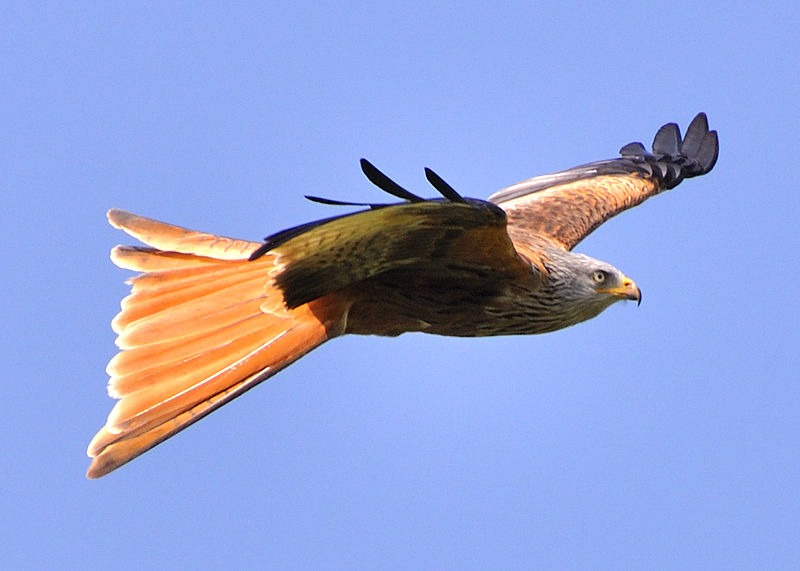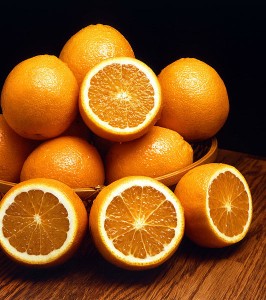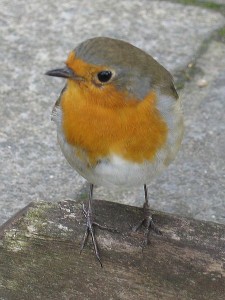
 Apparently we didn’t have a name for the colour orange in English until we discovered oranges around 1512. I wonder whether that is right.
Apparently we didn’t have a name for the colour orange in English until we discovered oranges around 1512. I wonder whether that is right.
This reminds me of my time at school where my Latin master told us all that oranges used to be called noranges but we English found that saying ‘a norange’ was too tricky and started saying ‘an orange’ instead. This all makes sense considering that the Spanish for oranges (which I certainly didn’t know back in 1971) is naranja.
And I think we must have got onto this through talking about the fact that umpires are really numpires, who are people who are numpus (or something similar) ie are on neither side. The truth seems a little different from that according to what I can find on t’internet.
And we do know that those snakes used to be nadders but are now adders.
So, coming back to the colour orange, that means that seven English kings called Henry ruled without saying orange and it was only the eighth who got to say orange.
 And again I am told, although my source thinks he heard it on QI perhaps, that this is why we call the Robin a redbreast (even though its breast is really quite orange) and that lovely kite a Red Kite (even though its tail is pretty orange) and a pretty woodland bird a Redstart (even though it has quite an orange tail).
And again I am told, although my source thinks he heard it on QI perhaps, that this is why we call the Robin a redbreast (even though its breast is really quite orange) and that lovely kite a Red Kite (even though its tail is pretty orange) and a pretty woodland bird a Redstart (even though it has quite an orange tail).
Is that right?
[registration_form]
Looking at the names of animals in other languages might give an idea. The Scottish Gaelic word ‘ruadh’ can mean a range of reddy hues, but usually orangey brown and is used for a variety of ‘red’ animals. Red deer-fiadh ruadh and red squirrel-feorag ruadh are a couple of examples. The robin though is ‘bru dearg’ which means red tummy, so who knows.
Also a napron becomes an apron. Same for auger.
Going the other way and gaining an ‘n’, an eke-name (an alternative name) becomes a nickname, an ewt becomes a newt
Gordon – thank you very much. I’d forgotten some of those but others were new to me.
We (English) are not the only ones calling a redstart a red-tail. In German it is ‘rotschwanz’ and in French ‘rouge-queue a front-blanc’, and in both those languages orange is ‘orange’!
David – interesting. French must, surely, have had the word orange for a long time too.
Before we had a word for the colour orange, were there only six colours in a rainbow? Did anyone know how much trouble it would cause?
It’s good to see someone thnniikg it through.
Alternative names for the robin also allude to its redness. According to “Provincial Names of British Birds” by C Swainson (pub. 1885) it was known as ‘Ruddock’ in the north and ‘Reddock ‘ in Dorset, derived from the Old English ‘rudduc’ related to the modern ‘ruddy’. According to the Shorter Oxford Dictionary Chaucer also referred to the robin as a a Rodok – “The tame rodok and the coward kite”.
Your source in refernece to QI is correct and was a question on the programme just three weeks ago it was also talking about the word orange. And is scarily close to your post.
Apparently only in the UK is the robin used on Christmas cards it in turned only appeared on cards as a “redbreast” because the link to postmen who used to deliver cards to households who happen to wear Red waistcoats….whats a postmen not seen one in the UK?
Christmas cards in New Zealand would be incomprehensible if they showed New Zealand robins. Red is much more cheerible, imho.
It’s a complicated topic. Gladstone noticed that the Ancient Greeks lacked a word for blue and concluded that there was something deficient with their vision. There have been more recent books on the subject….see
http://www.theguardian.com/books/2010/jun/12/language-glass-colour-guy-deutscher
Alan – many thanks. The wine-dark sea.
Yes.
You are absolutely right Mark. I blogged about this subject in September 2012:
http://www.dmackdimages.co.uk/blog/2012/9/reddy-or-not
Doug – nice blog!
Doug – nice blog!
Many thanks Mark. I’m very interested in the nomenclature of our British Wildlife Both vernacular naming and scientific names. I’m trying to catalogue a few interesting names on my other blog (zoonames.blogspot.co.uk) but never seem to have the time these days to add to it.
But you’re into hen harriers aren’t you… so this might interest you if you have a moment or two?
What with your “wine dark sea” above, you must have read a little Homer.
Greek mythology is everywhere it seems:
http://zoonames.blogspot.co.uk/2013/01/hen-harrier.html?m=1
Doug – very good again, I like that. I wonder whether the Hen Harrier’s habit of circling round to mob intruders, when it is flushed, might be relevant – probably not. It does make them easy to kill though.